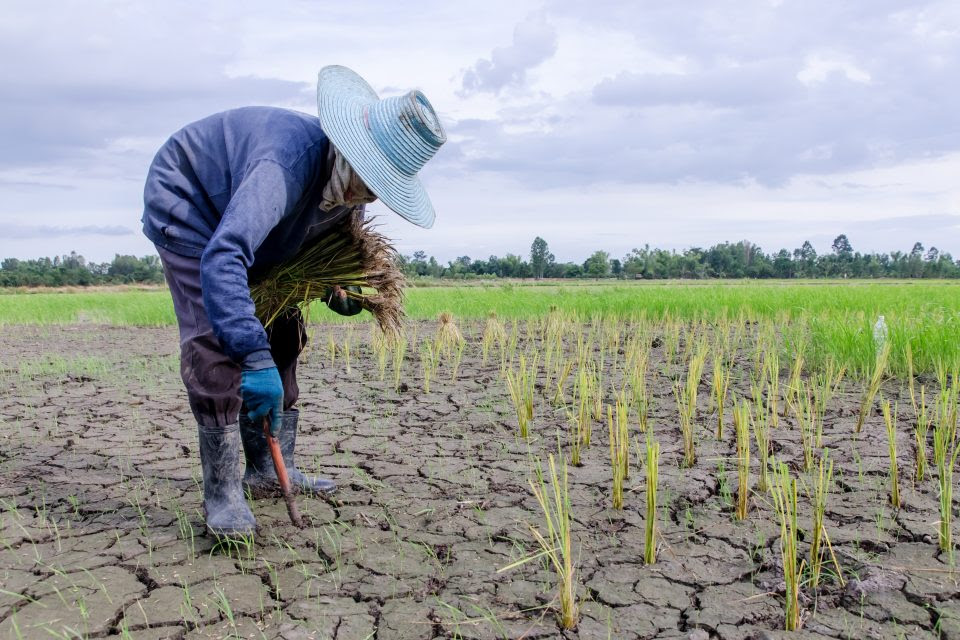The deficit is huge, the fields voluntarily not harvested, and the drought that has deprived the American Midwest of rain for months is costing farmers dearly in an agricultural region that is essential for the country.
The Tucker family in Venango, Nebraska, owns a farm of about 1,600 hectares. “We were only able to harvest about 200 acres this year,” said Rachel Tucker. Mostly wheat, “but a lot of the rest of it was sunburned.
Climate change has created a great drought, and it has also attracted grasshoppers, threatening to attack the flowers the Tuckers also grow. The farmer bought praying mantises to get rid of them, with success.
While the American West has been water-stressed for several years, you must go back to 2012 to find evidence of a similar episode in the Midwest.
“It’s worse” than it was ten years ago, assures Rachel Tucker. Her husband, whose grandfather once farmed this land, says it hasn’t been “this bad since the 1930s.”
The same thing, a little farther south, in Scott City, in western Kansas.
“I was talking to some older farmers this morning. People in their 70s and 80s. And they were saying they’d never seen anything like this. So it’s pretty catastrophic,” summarized Marc Ramsey, whose family has been planting and harvesting here for nearly 100 years.
The farmer hasn’t seen any significant rainfall since the last week of July.” Five inches of rain,” he says, “is all we’ve had this year.”
“That’s what’s maybe a little different from 2010, 2011 and 2012,” believes Rex Buchanan of the Kansas Geological Survey. “It seems that when the rain stops, it stops completely.”
The drought has affected all three major U.S. crops – wheat, corn and soybeans – for which the U.S. Department of Agriculture (USDA) recently had to significantly lower its yield forecast on a national average.
In the USA and Kansas and Nebraska, South Dakota has been particularly affected.
These three states usually provide one-third of the U.S. winter wheat production and one-quarter of the corn, which is currently in full harvest.
About 30% of Marc Ramsey’s land is irrigated. Those plots have done better than the rest, as has the Tuckers’ only field that benefits. But some have yielded only 5 tons of corn per hectare when they usually produce more than double that.
Since Kansas began growing corn on a massive scale in the 1960s and 1970s, “there’s been a pretty dramatic reduction (in the aquifer) in the west” of the state, says Rex Buchanan.
In some areas, “they’re struggling. They’ve seen wells go dry. They’ve had to go back to dry farming,” or no irrigation.
Pumping rights are strictly limited, and, according to the geologist, in some places, farmers have agreed to use groundwater more carefully, even if it means drawing 10% or 20% less than allowed.
Marc Ramsey, like the Tuckers, is covered by crop insurance that compensates for extraordinary losses.



Comment here